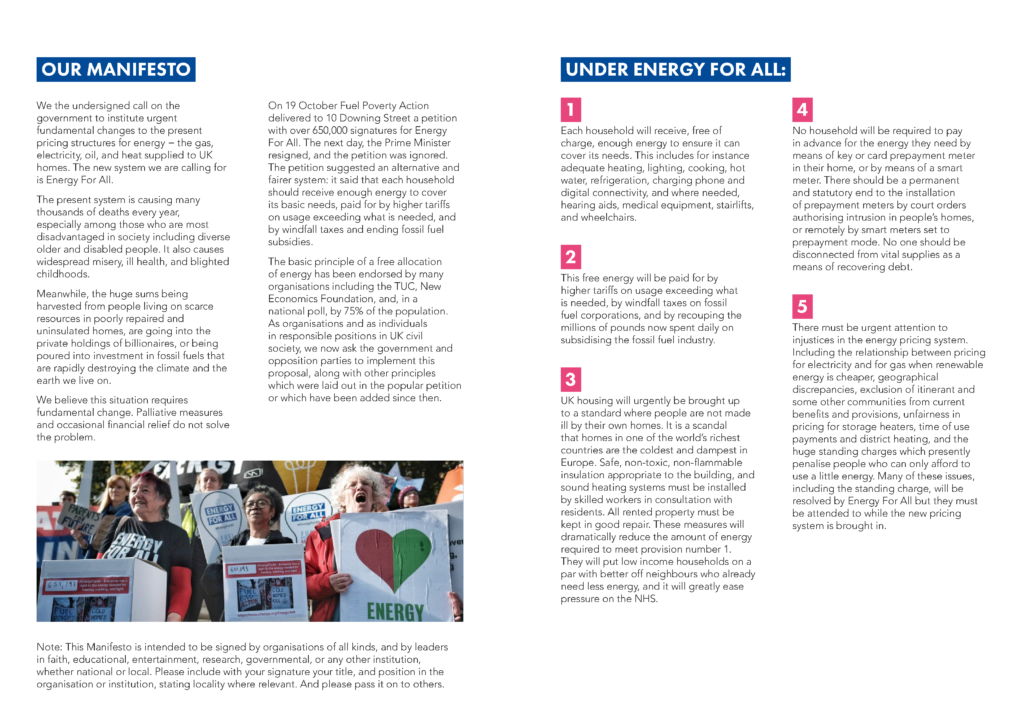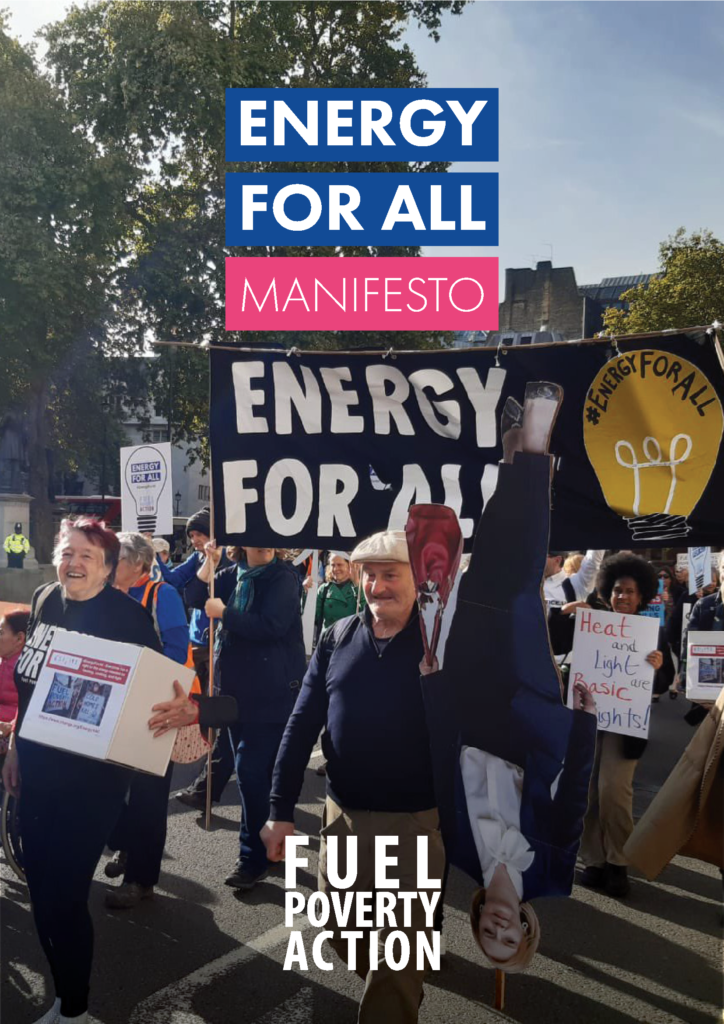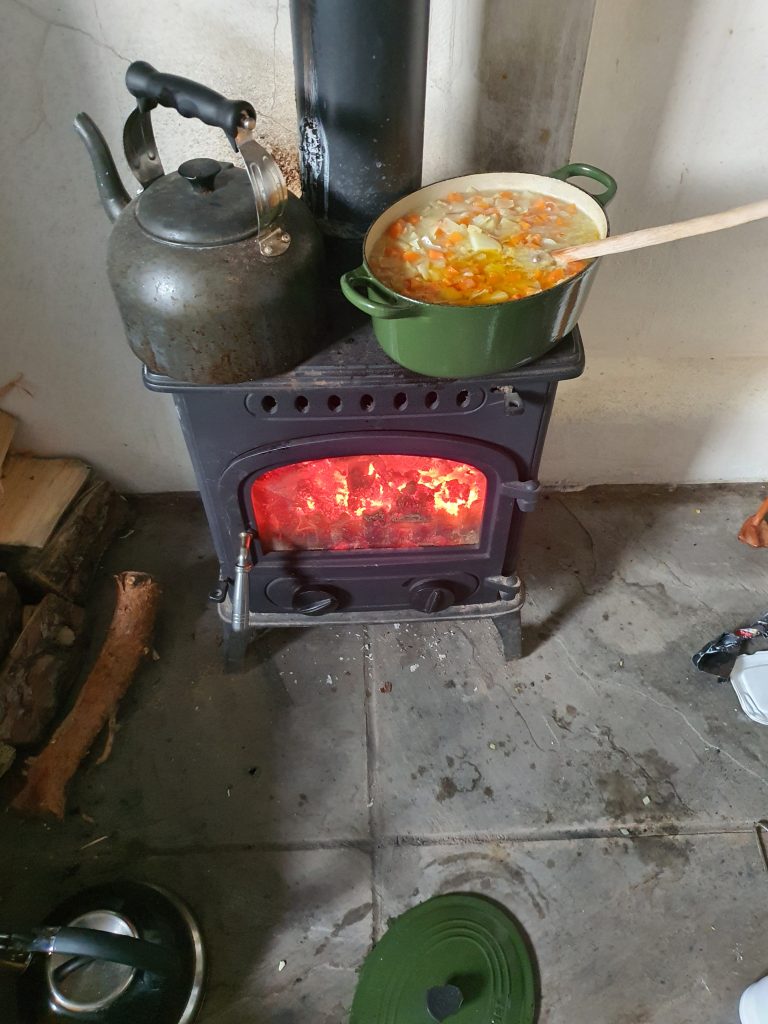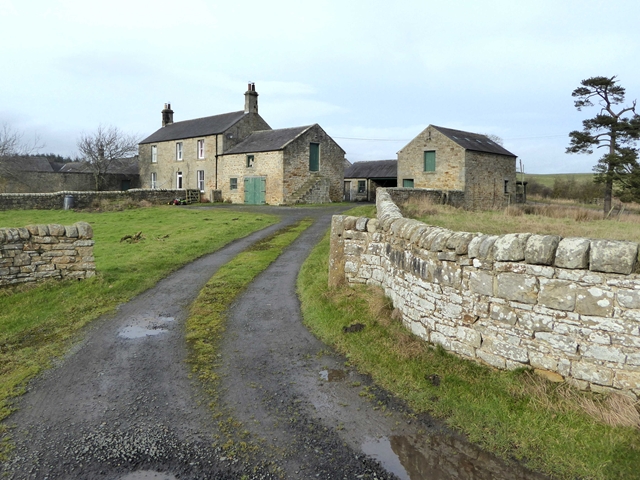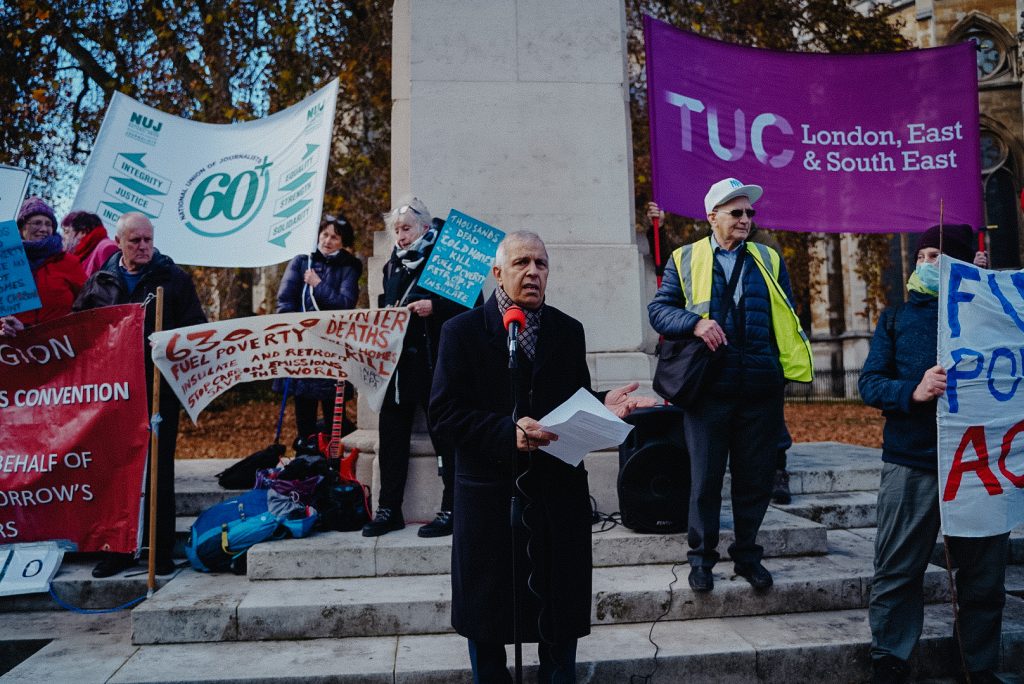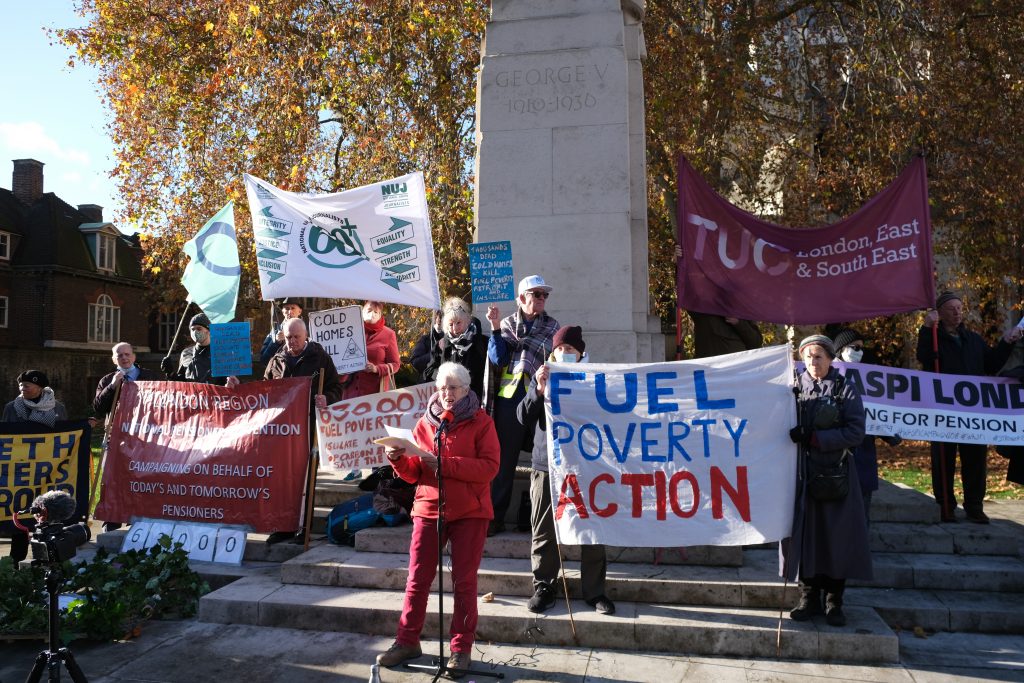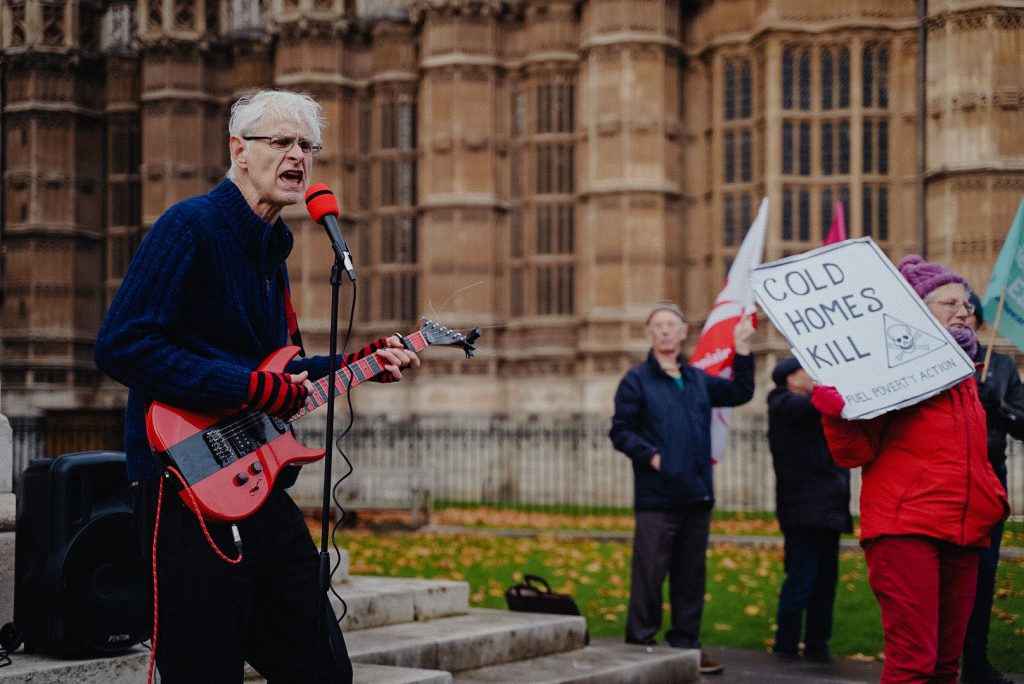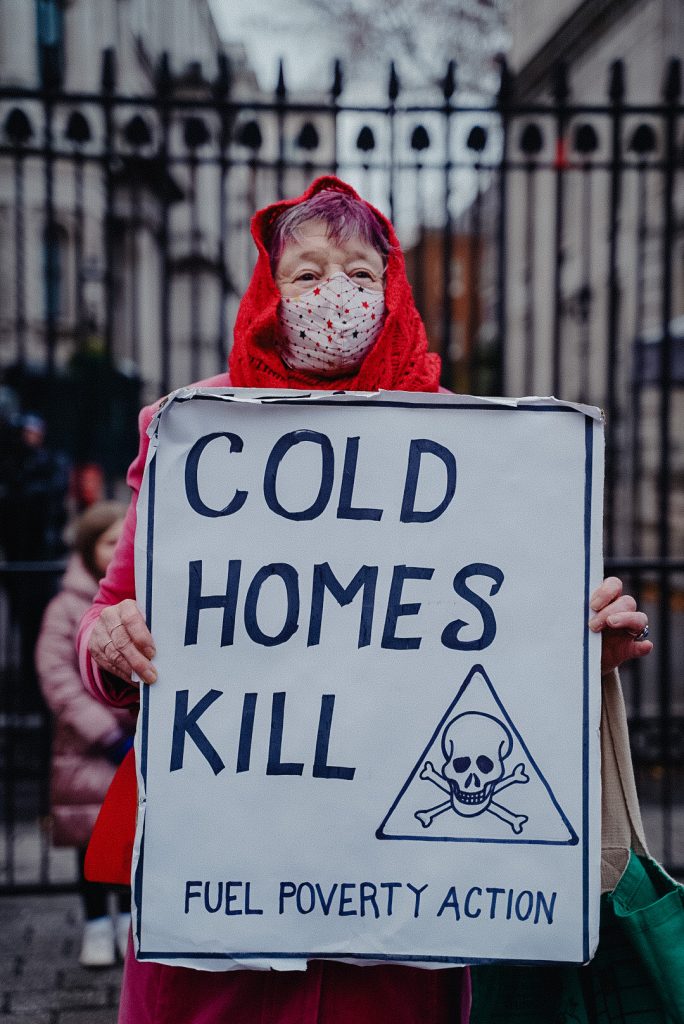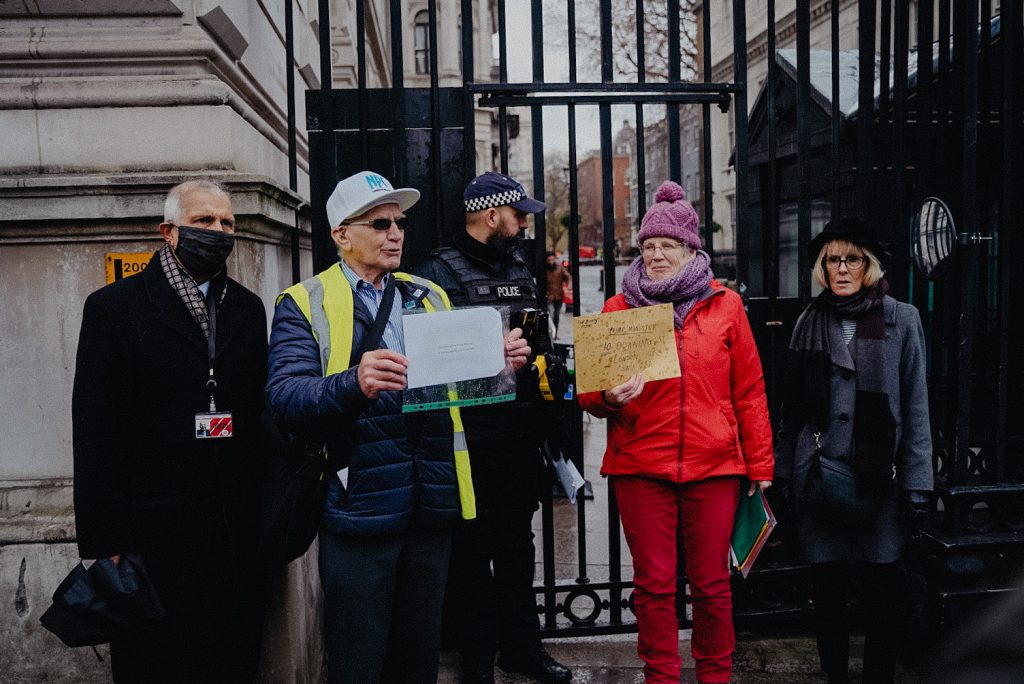On 26 November Storm Arwen hit the UK, and lights went out all over north east England, northern Ireland, and Scotland Over a million homes were affected. Not only light but heat, leaving many households in isolated, windswept rural areas in a desperate situation.
While old stone cottages in North East England are primarily heated by oil or coal, electricity is required to run the systems, and sometimes to pump and filter drinking water. Insulation is generally poor, and the cold is extreme. Yet action has been slow. Over a week after the outage began, several thousand homes were still without power, and now, nearly two weeks later, there are still some homes without power, even as Storm Barra sweeps in, causing yet further outages.
FPA has been in touch with one active local resident in Northumberland for several years, grappling with the thorny question of how such homes can be affordably, and sustainably, kept warm. In this crisis he turned to us again, and we worked to help ensure people were able to get temporary power supply from generators. We have now sent the following letter to Jonathan Brearley, CEO of Ofgem, attaching compelling evidence of the urgent need for compensation to be released immediately and in cash. For a brief verbal recording of the argument for this, listen here.
Dear Jonathan Brearley,
Thank you for your prompt action on the issue of generators. The assurances we received from Northern Powergrid on this issue did not accord with what we heard from people on the ground, but we understand that everyone is -- or at least soon will be -- back on the grid so the generators are no longer an issue, at least at this time. What is, however, urgent is the way in which guaranteed service payments are to be made to affected households, and particularly the timing of these payments.
What will Ofgem do to ensure that people are not left desperately short of money over Christmas, or even longer, and that they are not forced to carry huge debts on behalf of their power supplier?
I attach Charles Palmer’s evidence of just how people are suffering financially, in the absence of compensation more such stories are pouring in all the time. This is followed by his explanation of why every affected household should be advanced a portion of the compensation they are entitled to, and why this should happen now.
We’ll look forward to hearing from you.
Ruth London
Responses from residents online
The below are the comments our local contact collected from a single community Facebook Group, Hexham Matters in the space of two hours on 7 December. There are dozens of similar groups. Some of the people worst affected are not on the internet or social media. But evidence is pouring in of how badly people are being affected. There are more responses every hour. Names here have been changed.
Tim: Not so much of a hardship story, but still mighty frustrating. Power went out, braced it with ice on the windows for two night before booking myself and family into a local hotel (separate rooms and an “extra night” due to me working nights)
All the usual, lost all our month’s food bought the day before the power cut, all the store bought food over the last 10 days that we never knew we’d be able to claim for so didn’t keep any forms of receipts until two days ago.
No contact at all even after requested by local MP due to health condition. Hours wasted trying to ring their help line to get the same script as others. 3 different engineers turned up over the last 11 days. All three said they had no idea there was no power (ne20) even though there was at least 4 reports by the morning of the 27th. Outage map changing both the expected fix AND the reported on date (I have screenshots, so do other affected neighbours)
Oh, and Northern Powergrid almost got my Facebook account banned for spam for commenting on an update post saying we’ve had no updates  (update to that, they removed every comment and reply I tried to make about their lack of contact
(update to that, they removed every comment and reply I tried to make about their lack of contact  got time to play on Facebook but no time to actually contact people)
got time to play on Facebook but no time to actually contact people)
Thankfully power restored about 10am yesterday (not that I knew until I was at work at 5pm so had to pay an extra hotel night)
Biggest problem for me right now as someone how does their Christmas shopping in December… I’ve blown my entire paycheck for this month and dug out over half of the Christmas fund… Unless we get our refunds before the 22nd and amazon prime hasn’t cancelled my membership… No Christmas for us! Hand written cards and drawings under a snapped branch from the local fallen tree… Doing absolute wonders for my depression and anxiety, knowing after saving hard all this year I can barely bring any Christmas cheer  “
“
Linda: “This was exactly my comments to them why would we get receipts we didn’t know they would refund when I ordered an emergency extra load of coal and rushed to costa to but hot drinks and toasties for my disabled son and 86 yr old mother my first thought was getting hot food/drinks into them and keeping as warm as possible.”
Sandra: “A few of us in our village had a problem in that once the power came on, the motors on the central heating burnt out meaning an extra 5 days without heat. Between power off and power on, heating systems broke down. We will be getting invoices for heating engineers and plumbers – took 3 visits.”
Alice: “I live in Ridsdale, had no power for 8 days along withrest of village . I’m lucky, I own a cafe in Hexham so ate there most nights. Obviously no receipts but as a family of 5 we used up stock from the business. How do we claim/prove that?”
Sylvia: “All well and good saying that now, however we were unable to access any information for 6 days so have no receipts  “
“
Rebecca: We are a family of 4, power went off the Friday night of storm we had nothing until we got generators finally yesterday. Electricity still off now so Wi-fi is so I can’t work.
Our nearest family is 20 miles away so have been travelling back and forward for meals and warmth and to use Wi-fi. I work from home so internet was a necessity. Fuel we are using is getting ridiculous as husband works where we live so he needed to be here.
Kept getting calls saying would be on next day so didn’t see urgency at first and obviously didn’t know about receipts.
We have an autistic son and it has been incredibly unsettling for him and us. He was so upset when we got back Sunday to another dark and cold house he hates the house and wants to move (which we are going to now but that’s another issue with landlord not helping anyone either)
Our neighbour has had a stroke and is disabled and dependant on bed and chair and his wife has been besides herself. We all had no signal for ages so I was trying to get away from the house and ring whenever I could but advice I got from phone line was she would have to ring 999.
Liz: “Hi regarding your post about lack of power I’ve now been without power since the storm apparently due back on today fingers crossed so been without power heating or water for 10 days . No communication from power for first week and I had to ring them as I’m a frontline nurse and needed uniforms washed etc I’ve had to fork out over 500 pounds to keep my family safe warm and hydrated and now worrying how I’m going to afford Christmas food let alone presents .”
JT: “Just a reply to your post . Where to start .
A used nearly a month of logs in a week . I had to throw away a full freezer of food away . As well as 2 fridges full . Paid for 2 nights. In a hotel on the coldest nights . As it was -4 in my house . Paid for petrol to take my disabled children to South Yorkshire to stay with family as it was just 2 cold in house . Paid petrol their And petrol back as there was nowhere for me to stay . I lost all our tropical fish as the water in the tank froze . We never heard a thing from northern power or council . And as I’m a full time carer for my children I’m on benefits. So money was tight before this . But now I’m stressed as lets face it if it takes as long to be compensated as it did to get the power back it will be spring before we get any
[Mr Palmer notes: -Tim is not the only person who saw his Facebook comments curtailed or banned from commenting. I also experienced this]
Compensation needed now, in cash
It is customers’ statutory right to be compensated during power outages. The maximum amount legally required for this Guaranteed Standards payment is £700, but Northern Powergrid have agreed to waive that ceiling in the light of the long delay in restoring power after Storm Arwen. The problem is that the compensation IS NOT AVAILABLE NOW, and even when it arrives, it is normally paid in the form of a credit on electric bills, NOT IN THE FORM OF CASH that can be used for day to day survival.
Since statutory compensation is due to us by law, why cannot at least a portion of it — eg £500 per household — be made available now, in cash, so people can get through December?
In addition to the Guaranteed Standards Payment, Northern Powergem have also agreed to help with the cost of food, water, accommodation, kennels for pets, solid fuel, gas fuel, gas heaters, generator hire, and laundry. They say, “Please provide proof of purchase to this mailbox. We consider the circumstances on a case-by-case basis.”
We appreciate the offer, but there are some problems with this:
1- expenses are all very well but people need the money to spend before they can claim and we know that most of us have spent an entire month’s budget in a matter of days and some are facing considerable stress and hardship until payday or if and when compensation is paid.
2- receipts. How, exactly, are people to claim for burning coal.and firewood and butane that were purchased some time ago? People rarely buy coal and wood by the sack, they buy it in bulk for the winter or buy several bulk purchases throughout winter.
We bought 1/2 a tonne of coal 3 weeks ago. That would have lasted us until mid February, we have burned 3/4s of it plus many loads of firewood donated by a neighbour over the crisis. How do we claim for that?
3- there appears to be a fundamental lack of understanding around how rural budgets work. Diesel and petrol are by far the largest household expense. As a result we budget on how many trips we need to do into town, to the schools, to every facility or service that most urban people can walk to or get public transport. There is little or no public transport to many of our outlying communities. The crisis has completely thrown that budgeting. Let me explain. If you live remotely then you are probably using at least a tank of fuel a week, if you have a family, based on x number of trips perhaps more perhaps less. If you lived 5 miles from your nearest Community Center and were forced to head there 3 times a day to get hot food and warmth then you are driving an additional 30 miles a day, unbudgeted for. This means that that tank of fuel that lasts a week now lasts 3 days. Furthermore with one fuel station at Bellingham, between Hexham and Jedburgh, following the closure over the past 10 years even the act of buying fuel uses fuel.
Are NPG going to make allowances for additional travel expenses, taxis to community centres or food sources or the cost of fuel due to the increased essential travel?
4- Lastly, in refusing to countenance releasing even a portion of the compensation payment to households affected, NPG are essentially expecting us to carry the debt until that payment is made. People will be borrowing from banks, credit cards, families and friends and other sources, some decidedly less than advisable. Why should they carry this stress and burden especially in December?


